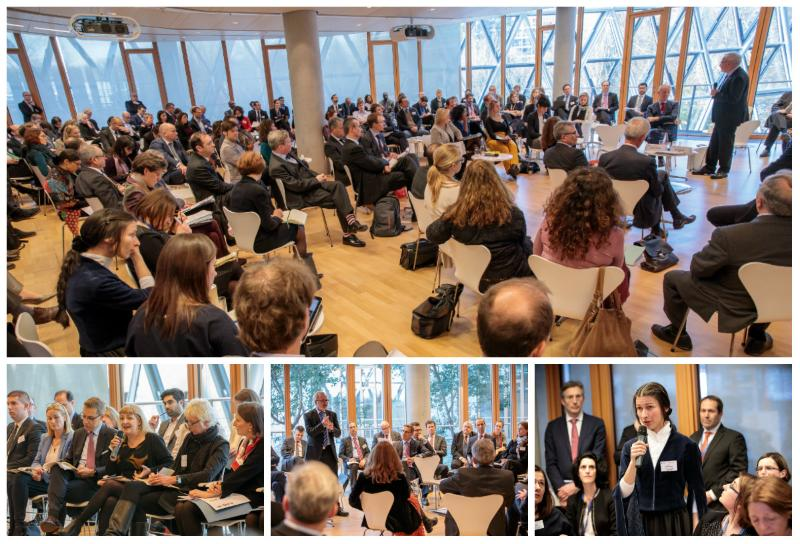This year, the seminar was preceded by a side-event dedicated to the Trans Adriatic Pipeline project, which is part of the Southern Gas Corridor. High-level representatives from the European Commission, the European External Action Service, and the EIB engaged in a rich and comprehensive discussion with civil society organisations in presence of members of the EIB Board of Directors and Management Committee.
The seminar was opened by Vice-President Alexander Stubb before the Secretary General and Director Generals provided an overview of the Bank’s achievements since the last meeting and outlined its priorities for the year ahead. During 2018, the Bank would like to further exchange with civil society on the update of its Non-Compliant Jurisdictions (NCJ) Policy. The Bank also announced a review of its energy lending criteria foreseen to be completed in 2019.
Participants were then invited to explore how to support the transition to low-carbon cities during the first thematic session. For sustainable cities to be also inclusive ones, impulse speakers emphasised the need to embed energy efficiency in innovative urban planning approaches. The key ingredient emerging from the discussion was that partnerships were essential to address issues in a comprehensive way. The role of the EIB, as providing not only investments but also technical support, was of real interest to civil society.
The second thematic session looked at another urging challenge: tackling gender inequalities in our business. The discussion explored the different ways to protect women’s rights and strengthen their economic empowerment when financing investments. Many ideas were debated with some having the potential to inform the first phase of the EIB’s Gender Action Plan which operationalises the 2016 EIB Group Strategy for Gender Equality and Women’s Economic Empowerment. Among them was the fact that the EIB, building on lessons learned to date by peers who entered this field earlier, may now be able to position itself at the vanguard of gender equality, within the EU as well as outside, by setting ambitious goals. Similarly to the previous session, it was also suggested to develop partnerships to benefit from other stakeholders’ experience and expertise.
At the end of the seminar, a very high number of Board members listened to civil society’s suggestions and answered their many questions. The discussions covered both specific projects, like the Trans Adriatic Pipeline and the Nenskra Hydropower Plant, as well as policies including the ongoing review of the EIB Complaints Mechanism, as well as updating of the Non-compliant Jurisdictions (NCJ) Policy and of the EIB’s Energy Lending Policy. The Board also clarified its role and responsibilities and recognized the importance of this engagement with civil society.
All these issues, and many more, will be reported back on during the next Board seminar, early 2019 as it was the case this year.
